Philadelphia YIMBY’s recent site visit has noted that construction work has not yet begun at the site of a 42-story-story high-rise proposed at 1826 Chestnut Street in Rittenhouse Square, Center City. Ostensibly developed by Goodman Properties. The development’s location next to the proposed high-rise at 113-121 South 19th Street suggests a height of around 550 feet.
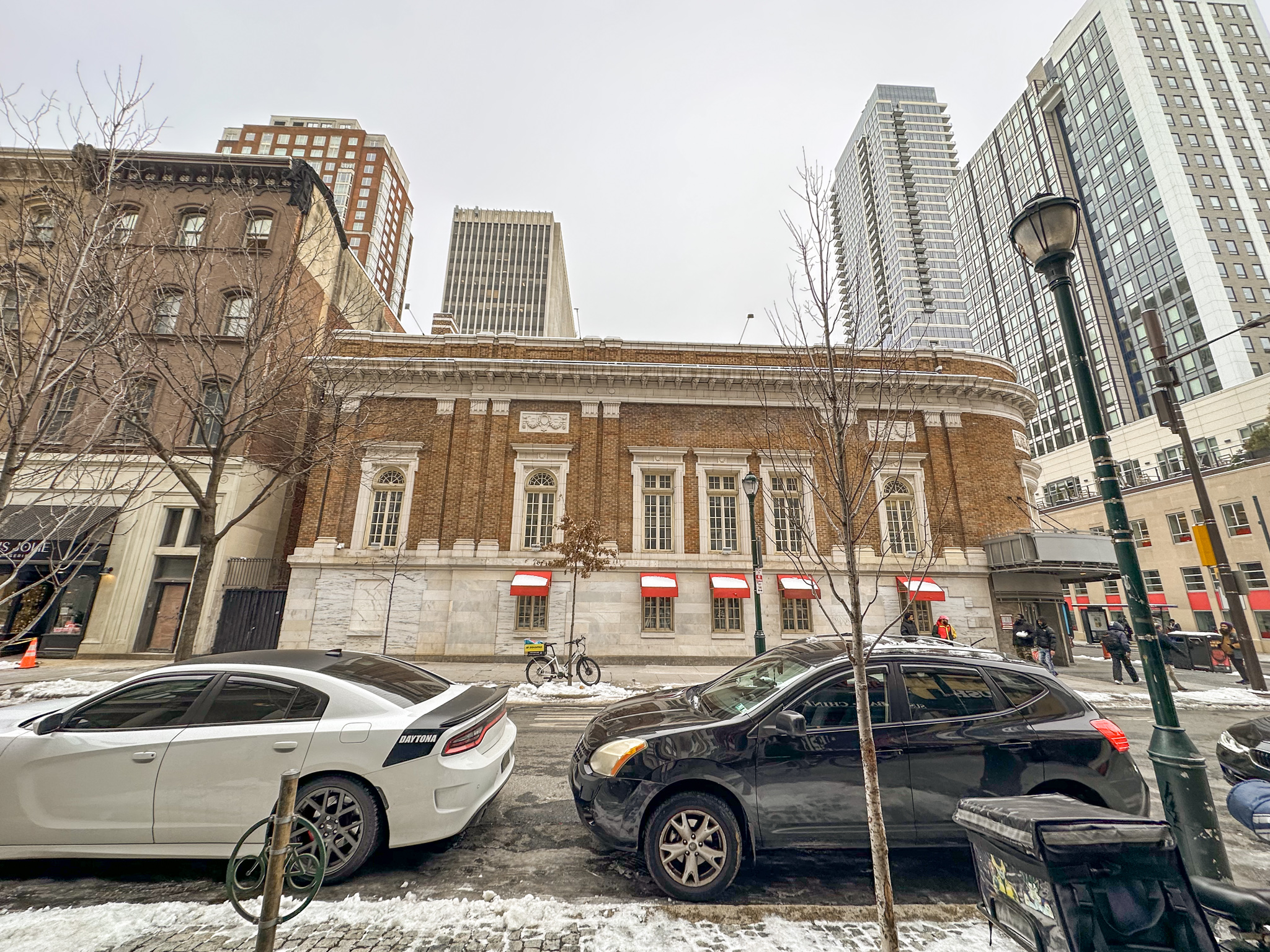
1826 Chestnut Street. Photo by Jamie Meller. January 2024.
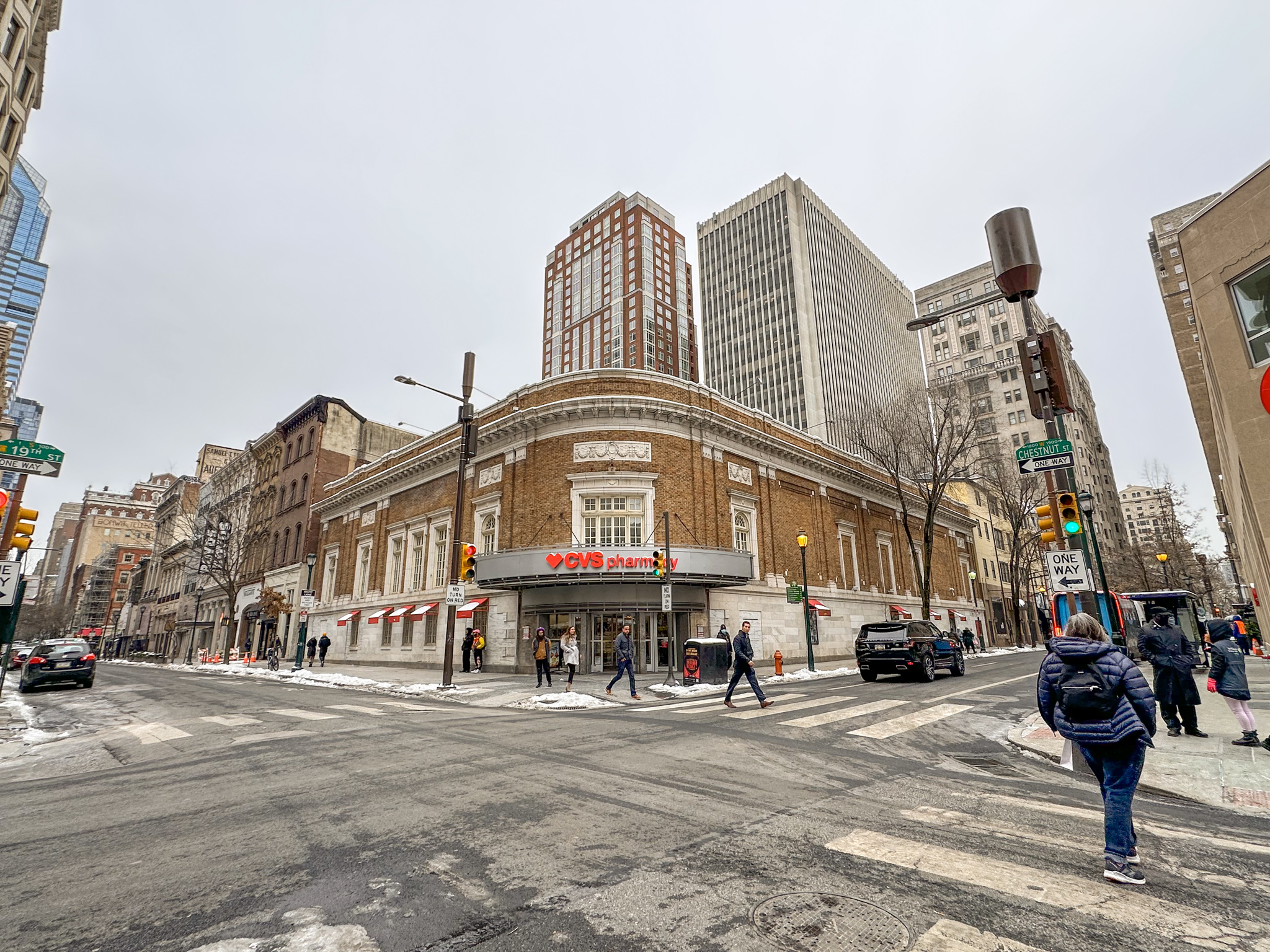
1826 Chestnut Street. Photo by Jamie Meller. January 2024.
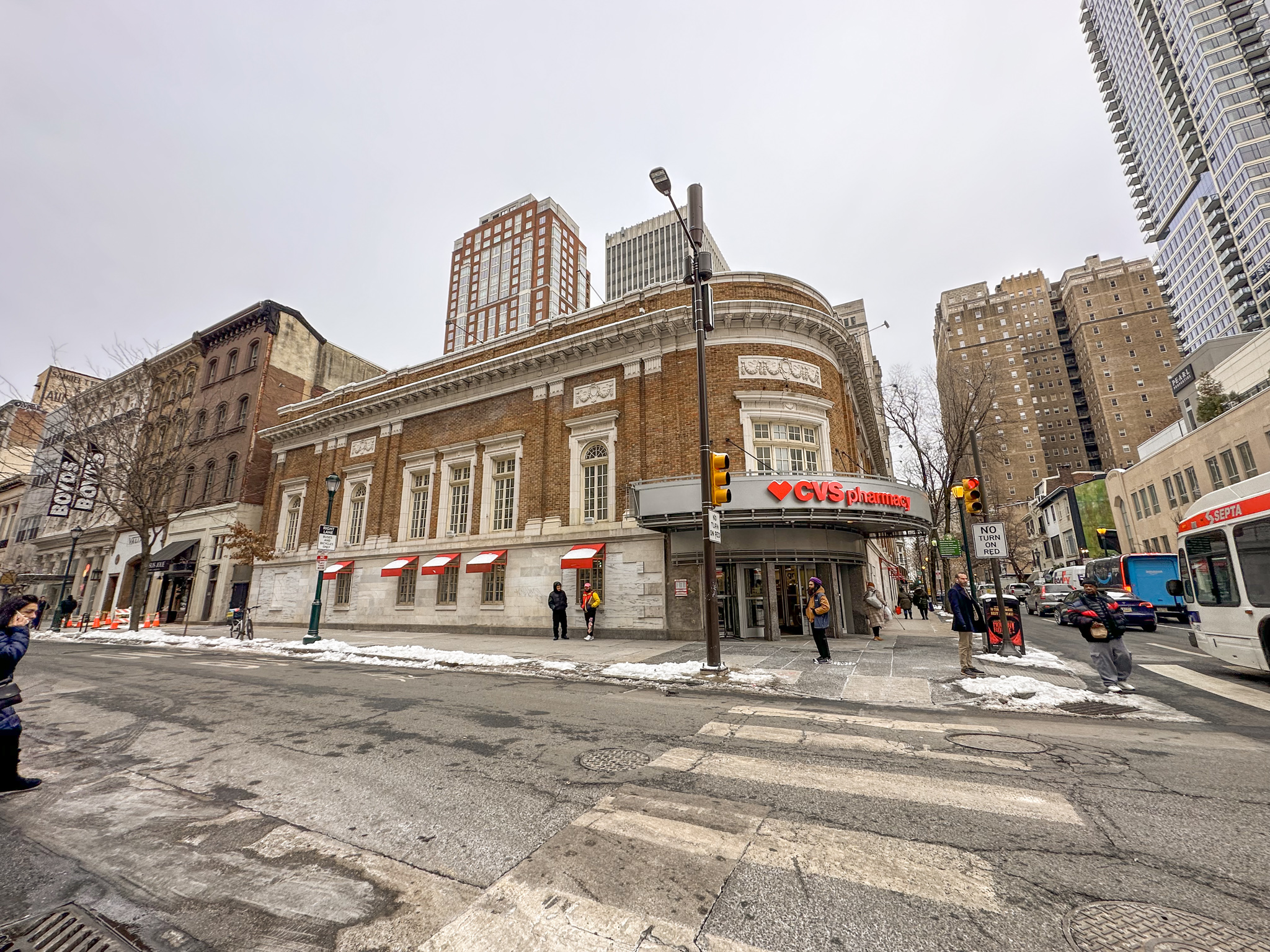
1826 Chestnut Street. Photo by Jamie Meller. January 2024.
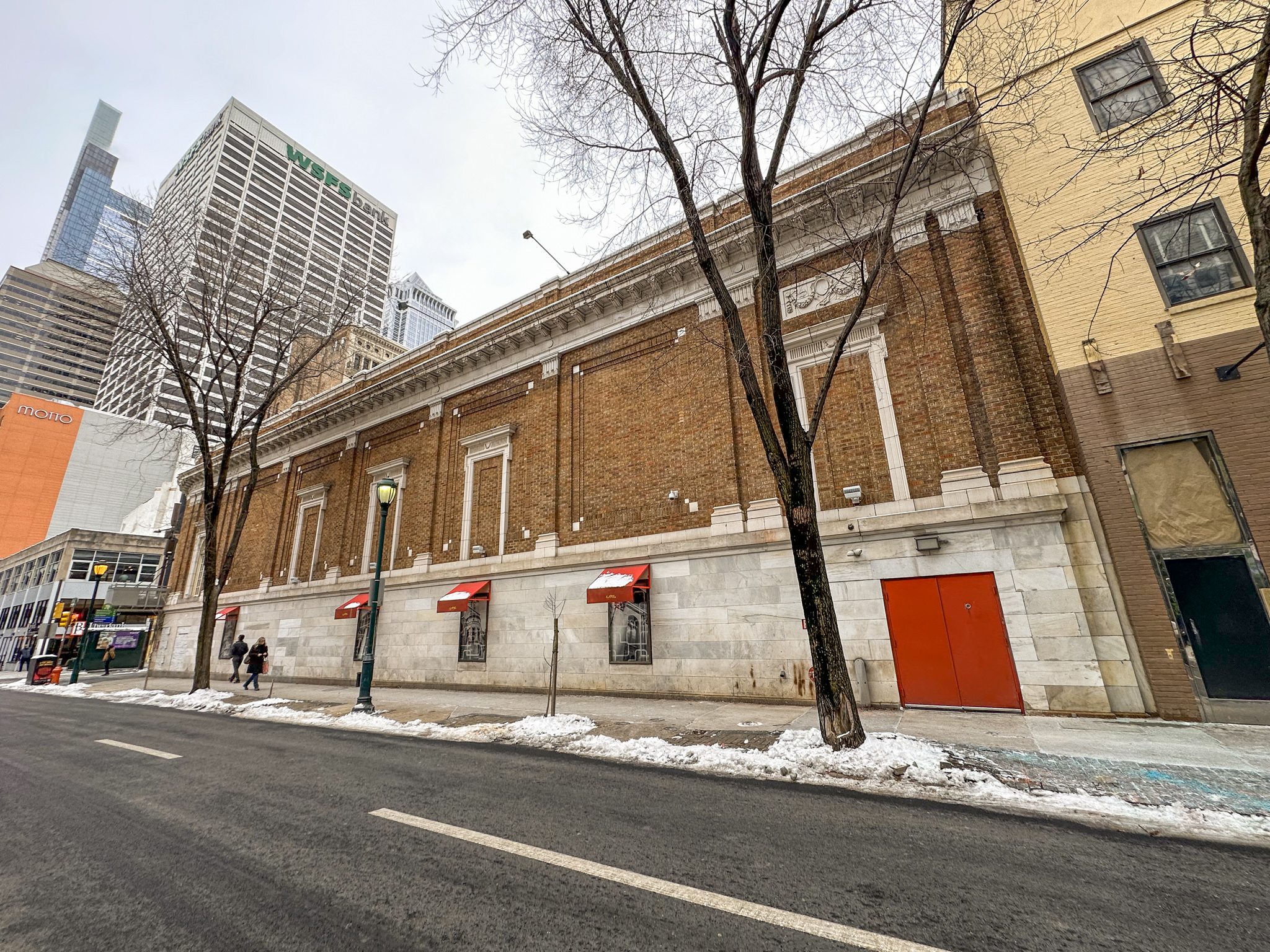
1826 Chestnut Street. Photo by Jamie Meller. January 2024.
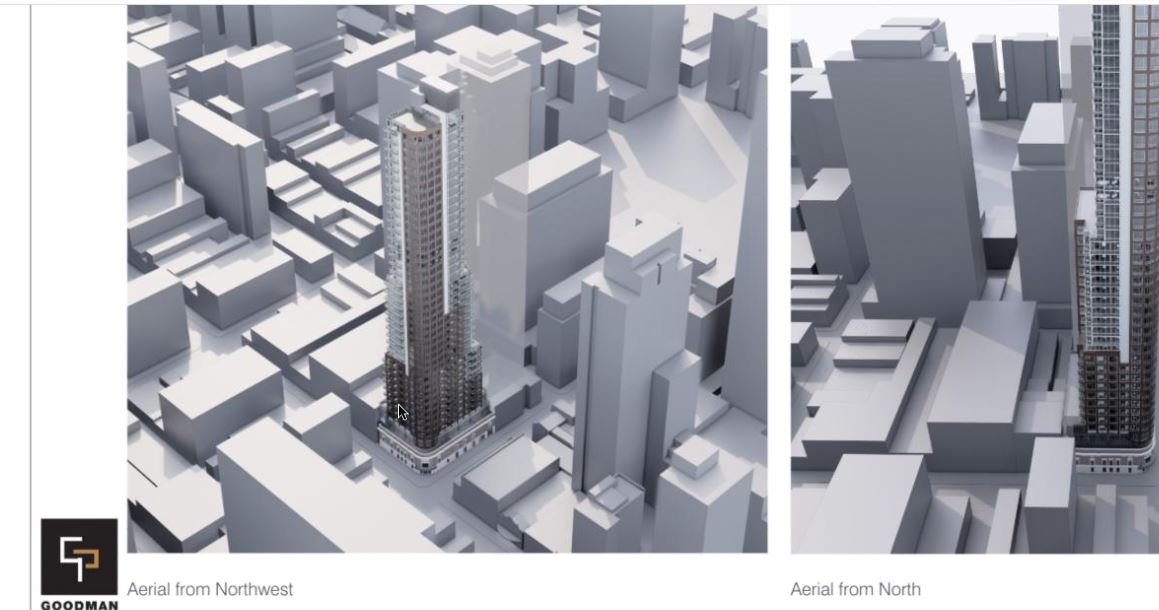
1826 Chestnut Street. Credit: 1826 Chestnut Street via FairmountFellow at SkyscraperPage
The building at the site is notable for its extensive history. In 1921, the property opened as The Aldine, a movie theater with sumptuous interiors once described as Center City’s “most brilliantly lit movie house.” The theater was notable not only for its selection of motion pictures, such as Al Jonson’s groundbreaking yet controversial “The Jazz Singer,” but also for its refusal to accept African-American patrons, a common and unfortunate practice in many upscale establishments in Center City at the time.
In the mid-1920s, Raymond Pace Alexander, the first African-American graduate of the University of Pennsylvania’s Wharton School, filed two discrimination lawsuits, the second of which promoted the theater management to drop its discriminatory policy and issue a public apology.
Historian Kenneth Mack noted that “The Aldine’s choice to exclude Black theatergoers sparked perhaps the most sustained set of conflicts over public accommodations in the city,” which continued with similar lawsuits at other establishments, both by Alexander and others, boycotts, and other actions that paved the way for the passage of the Pennsylvania Equal Rights Law in 1935 and a further route in the civil rights movement.
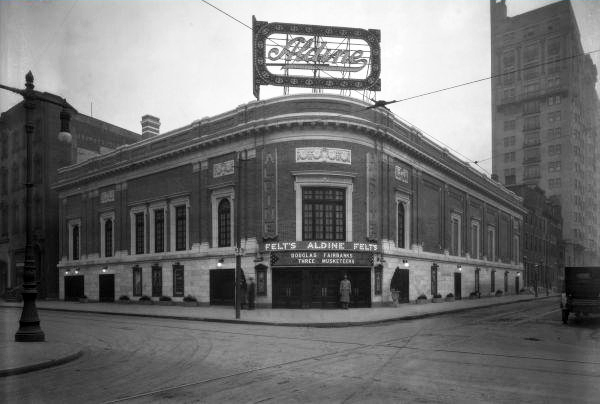
The Aldine Theatre a 1826 Chestnut Street. December 8, 1921. Looking southeast. Credit: PhillyHistory.org
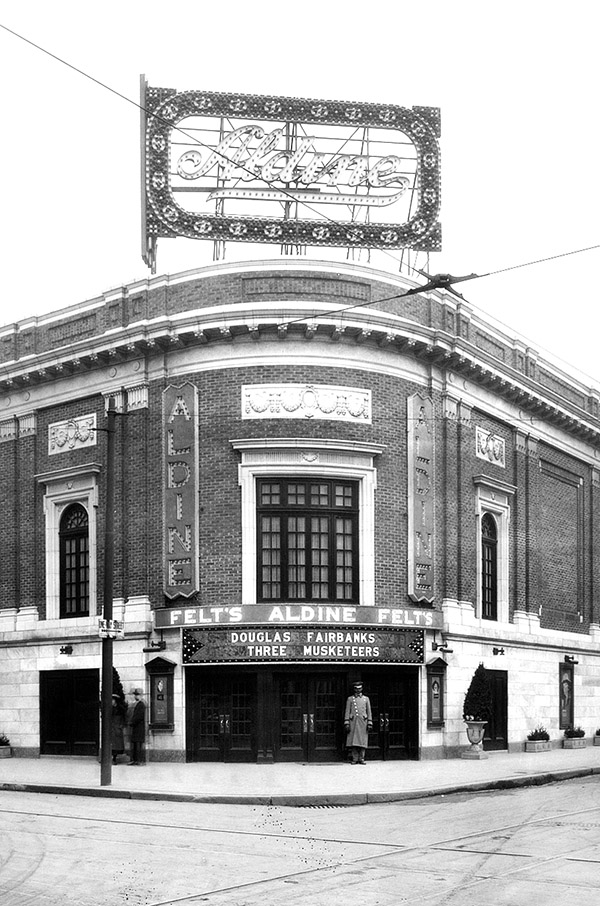
The Aldine Theatre a 1826 Chestnut Street. December 8, 1921. Looking southeast. Credit: PhillyHistory.org
Subscribe to YIMBY’s daily e-mail
Follow YIMBYgram for real-time photo updates
Like YIMBY on Facebook
Follow YIMBY’s Twitter for the latest in YIMBYnews

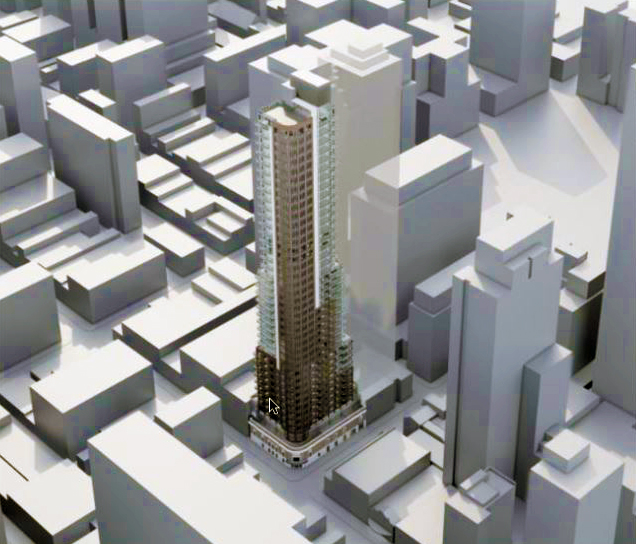
How wonderful to know more of the Black History that isn’t generally known about the city of Philadelphia. Thank you.
This is an amazing bit of information about the city of Philadelphia! How much more is probably hidden from our knowledge?
Fascinating history. My grandfather, architect Frank V. Nickels was a close friend of Raymond Pace Alexander. A large portrait of RPA (artist William Stewart) hung in my grandfather’s living room for years. Alexander’s papers at UPenn contain letters between the two.